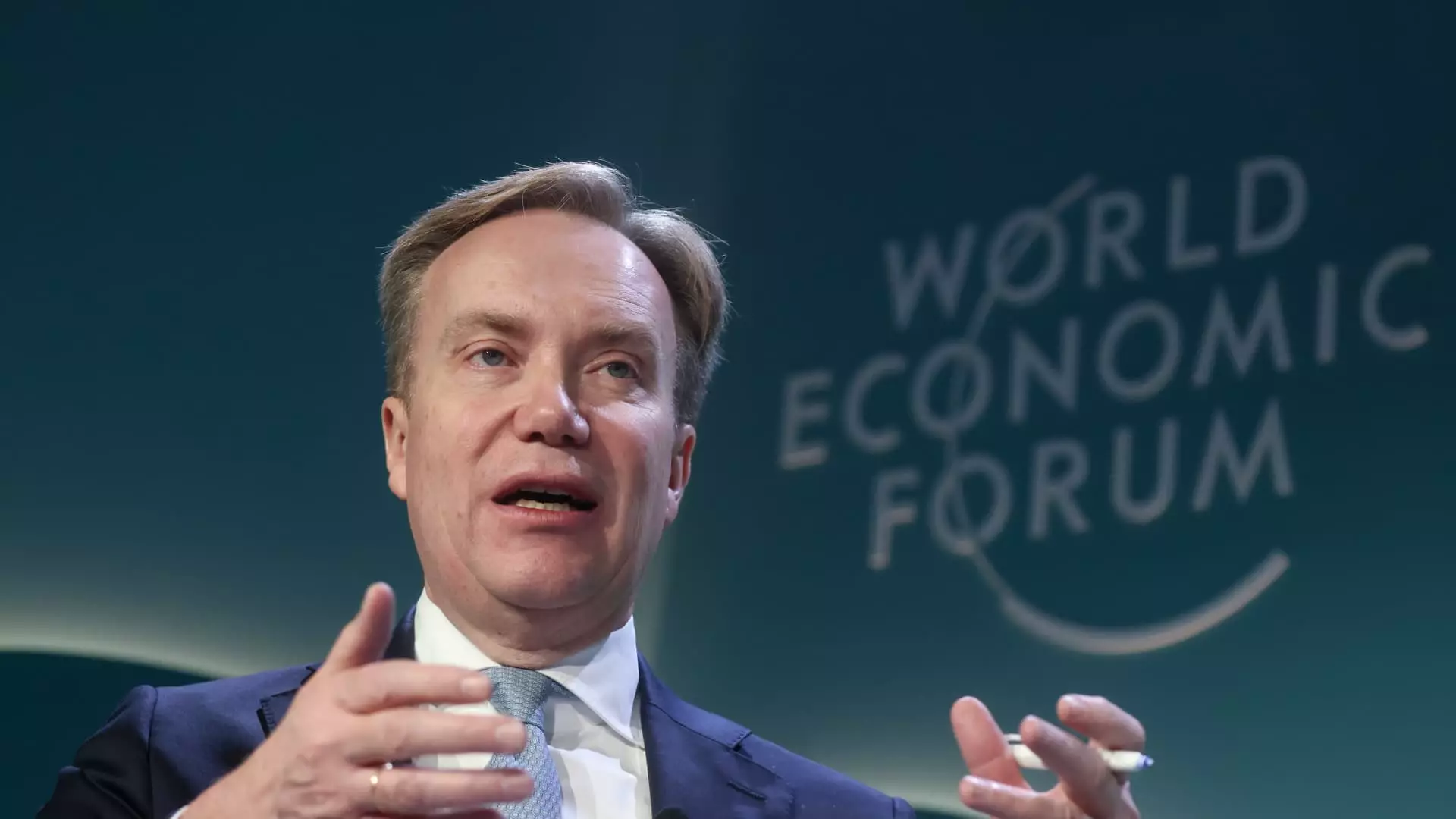The president of the World Economic Forum, Borge Brende, recently painted a grim picture of the global economy, cautioning that the world is on the brink of a decade of low growth if the right economic measures are not taken. He spoke at WEF’s “Special Meeting on Global Collaboration, Growth and Energy for Development” in Riyadh, Saudi Arabia, highlighting the risks of high global debt ratios and the possibility of “stagflation” in advanced economies.
According to Brende, the current global growth estimate stands at around 3.2%, which is lower than the trend growth rate of 4% that the world has been accustomed to for decades. He warned that there is a risk of a slowdown similar to that seen in the 1970s in some major economies if immediate action is not taken. Brende emphasized the importance of avoiding a trade war and maintaining global trade relationships, even as global value chains undergo changes due to factors like near-shoring and friend-shoring.
One of the key concerns highlighted by Brende is the escalating global debt levels, which have not been seen since the Napoleonic Wars. He stressed the need for governments to address the growing debt burden and implement the right fiscal measures to prevent a recession. Brende also mentioned the potential of generative artificial intelligence as an opportunity for developing countries to boost their economies.
Brende’s warnings echo a recent report from the International Monetary Fund, which revealed that global public debt had risen to 93% of GDP last year, significantly higher than pre-pandemic levels. The IMF projected that global public debt could reach close to 100% of GDP by the end of the decade. The report also pointed out the high debt levels in countries like China and the United States, emphasizing the impact of loose fiscal policies on global interest rates and funding costs.
In addition to economic challenges, Brende highlighted geopolitical tensions as a significant risk factor for the global economy. He specifically mentioned the escalating tensions between Iran and Israel, emphasizing the potential for unpredictable events to impact global oil prices. Brende warned that a conflict between the two nations could result in a sharp increase in oil prices, causing significant damage to the global economy.
The warnings issued by Borge Brende serve as a stark reminder of the fragile state of the global economy. Addressing issues such as high debt levels, geopolitical risks, and the need for fiscal prudence will be essential in navigating the challenges ahead and preventing a prolonged period of low growth. Only time will tell whether policymakers around the world heed these warnings and take the necessary steps to safeguard the global economy.


Leave a Reply